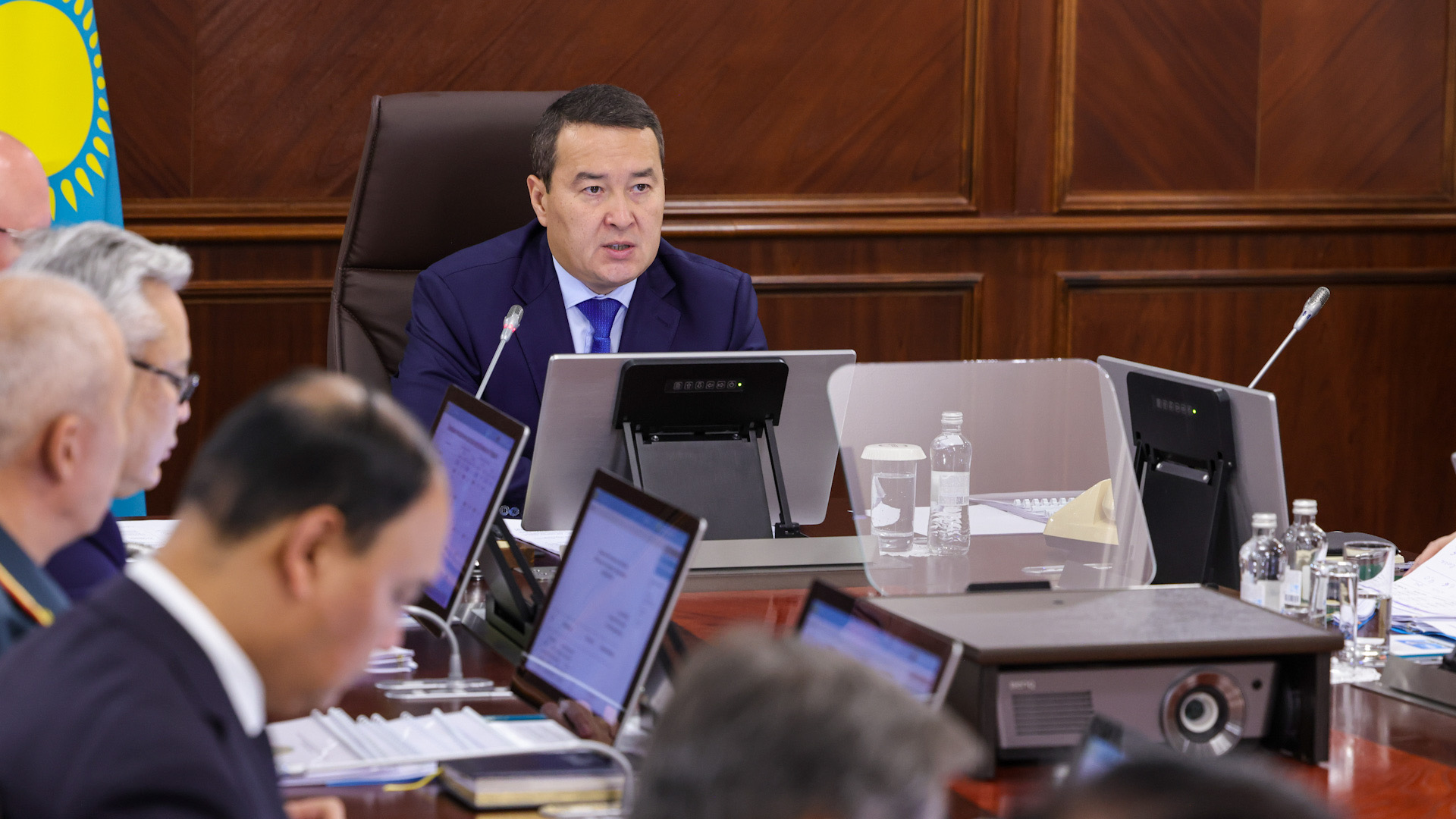ASTANA – The average annual growth of Kazakhstan’s economy in the next five years is projected at 5.8%, Minister of National Economy Alibek Kuantyrov said at an Aug. 29 government meeting dedicated to the forecast for the country’s socio-economic development, reported the Prime Minister’s press service.

Alikhan Smailov chairs a government meeting dedicated to the forecast for the country’s socio-economic development. Photo credit: primeminister.kz.
The forecast considered the expectations of international financial organizations regarding the growth of the world economy and the situation in foreign markets. The ministry considered baseline, optimistic and pessimistic scenarios, Kuantyrov noted.
Under the baseline scenario, it is proposed to take the average oil price at $80 per barrel. Inflation is set at 6-8% next year and 5.5-7.5% in 2025, with a subsequent decline to 5% in 2026-2028.
Real GDP growth in 2024 is projected to be 5.3%, increasing to 6% in 2028. Nominal GDP will grow from 135 trillion tenge ($291.4 billion) in 2024 to 218.5 trillion tenge ($471.7 billion) in 2028.
As stated by Kuantyrov, growth is expected in all main sectors of the economy, with 4% of the average annual rate in industry, including 4.9% in manufacturing and 3.1% in mining sectors. The average annual increase in gross agricultural output will reach 4.5%. The predicted growth in the construction industry will average 8.8%, in trade – 7.4%.
The volume of exports is planned to be brought to $83.1 billion in 2024, with an increase to $94.8 billion in 2028, whereas imports will grow from $60.7 to 65.6 billion.
According to Deputy Prime Minister and Minister of Finance Yerulan Zhamaubayev, next year, the National Fund will allocate 3.6 trillion tenge ($7.7 billion) worth of transfers to modernize roads and engineering, heating, gas, and water supply networks and build social facilities within the national projects Comfortable School and Modernization of Rural Healthcare.
Zhamaubayev said that revenues in 2024 are projected at 20.4 trillion tenge ($44 billion), while expenditures will increase to about 24 trillion tenge ($51.8 billion).
Prime Minister Alikhan Smailov highlighted the balanced draft budget for the three years, noting its focus on the social sphere.
He pointed out that the development of the manufacturing industry, transport infrastructure, gasification, and business support remain priority areas in the real sector of the economy.
“In 2024, expenses of this block will reach 2.8 trillion tenge ($6 billion). We are faced with making the most efficient use of budgetary funds,” he said.
